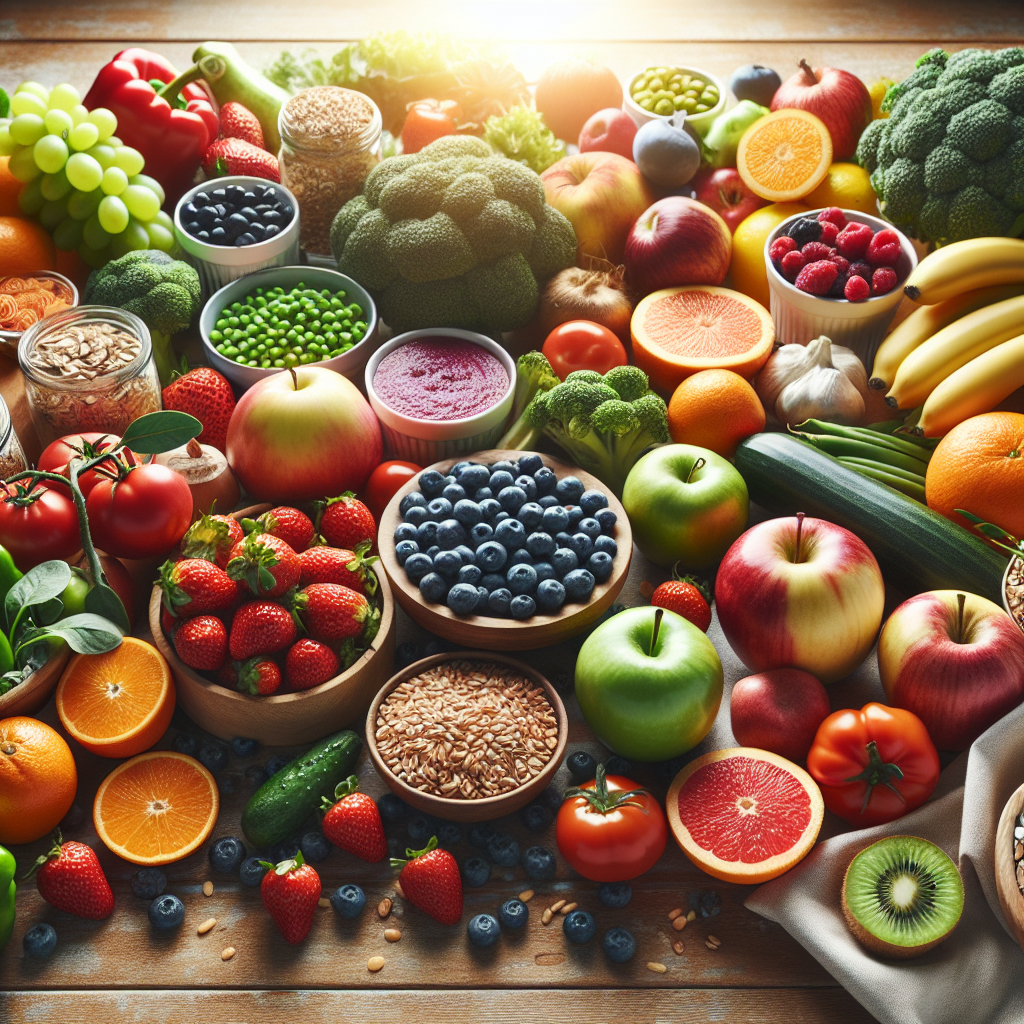When it comes to weight management, the quality of the food you consume matters just as much as the quantity. Organic whole foods, such as quinoa, lentils, and fresh produce, offer a nutrient-dense, low-calorie approach to healthy weight loss and maintenance. Unlike processed foods laden with additives, organic options provide essential vitamins, minerals, and fiber that help regulate metabolism and curb cravings naturally.
Why Organic Foods Support Weight Management
Organic foods are cultivated without synthetic pesticides, chemical fertilizers, or genetically modified organisms (GMOs). This means they retain higher nutritional value compared to conventionally grown alternatives. The absence of artificial additives also helps reduce inflammation and hormonal imbalances, which are often linked to weight gain.
Nutrient Density and Satiety
Organic whole foods are packed with essential nutrients that promote satiety. Foods like quinoa, lentils, leafy greens, and berries are rich in fiber, protein, and healthy fats that keep you full longer. Unlike empty-calorie processed snacks, these foods provide sustained energy without causing blood sugar spikes that lead to overeating.
Lower Caloric Intake with High-Quality Nutrients
Because organic foods are free from artificial sweeteners, preservatives, and refined sugars, they naturally encourage lower calorie consumption. A diet centered around whole, organic ingredients helps regulate appetite hormones like leptin and ghrelin, reducing the likelihood of binge eating.
Top Organic Foods for Weight Management
Incorporating specific organic foods into your diet can accelerate weight loss while ensuring you receive vital nutrients. Here are some of the best choices:
- Quinoa – A complete protein source that keeps you full and supports muscle maintenance.
- Lentils – High in fiber and plant-based protein, aiding digestion and reducing cravings.
- Leafy Greens (Kale, Spinach) – Low in calories but rich in iron and antioxidants.
- Berries (Blueberries, Strawberries) – Packed with fiber and natural sweetness to curb sugar cravings.
- Avocados – Loaded with healthy fats that promote satiety and reduce overeating.
How to Incorporate Organic Foods into Your Diet
Making the switch to organic doesn’t have to be overwhelming. Small, sustainable changes can yield significant results over time.
Meal Planning with Organic Ingredients
Start by replacing processed snacks with organic alternatives. For example:
- Swap white rice with quinoa or brown rice.
- Replace sugary cereals with overnight oats made from organic rolled oats.
- Opt for organic nut butters instead of refined peanut butter with added sugars.
Smart Grocery Shopping
Prioritize organic versions of the Environmental Working Group’s (EWG) “Dirty Dozen”—produce most contaminated with pesticides, such as strawberries, spinach, and apples. For budget-conscious shoppers, the “Clean Fifteen” list includes foods like avocados and sweet potatoes, which are safer to buy conventional if needed.
Long-Term Benefits of an Organic Diet for Weight Control
Beyond immediate weight loss, an organic-focused diet supports long-term metabolic health. Studies suggest that organic foods may enhance gut microbiome diversity, which plays a crucial role in digestion and weight regulation. Additionally, reduced exposure to pesticides and endocrine disruptors helps maintain hormonal balance, preventing weight-related issues like insulin resistance.
Sustainable Weight Maintenance
Unlike fad diets that lead to yo-yo weight fluctuations, a diet rich in organic whole foods fosters sustainable habits. Because these foods are naturally satisfying, they discourage the restrictive eating patterns that often backfire.
Final Thoughts
Choosing organic foods for weight management isn’t just a trend—it’s a science-backed strategy for achieving and maintaining a healthy weight. By focusing on nutrient-dense, minimally processed ingredients, you can nourish your body while effortlessly managing calories. Whether you’re starting with quinoa bowls, lentil soups, or organic greens, each small change brings you closer to lasting wellness.
